PTL #5 - Resilience
“How might we build resilient product leaders?”
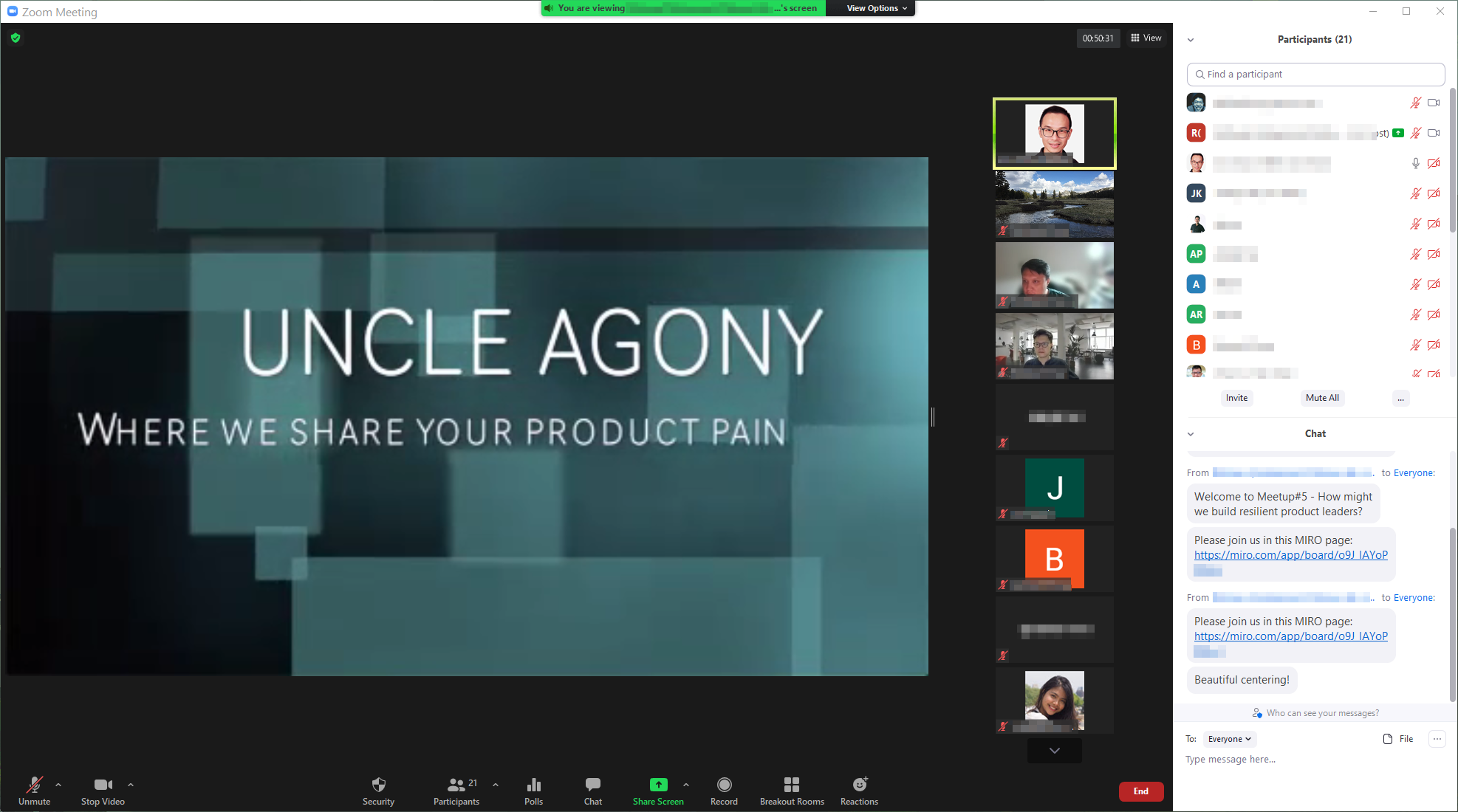
Facilitated by Ridzwan, Jocelyn, Lin Chou
What we learnt:
- What does resilience mean to each one of us
- Appreciate that resilience sits on a sliding scale and is adaptive
- What we can do to strengthen our individual and team resilience
- Impact of mindset on the resilience of your team
What is resilience?
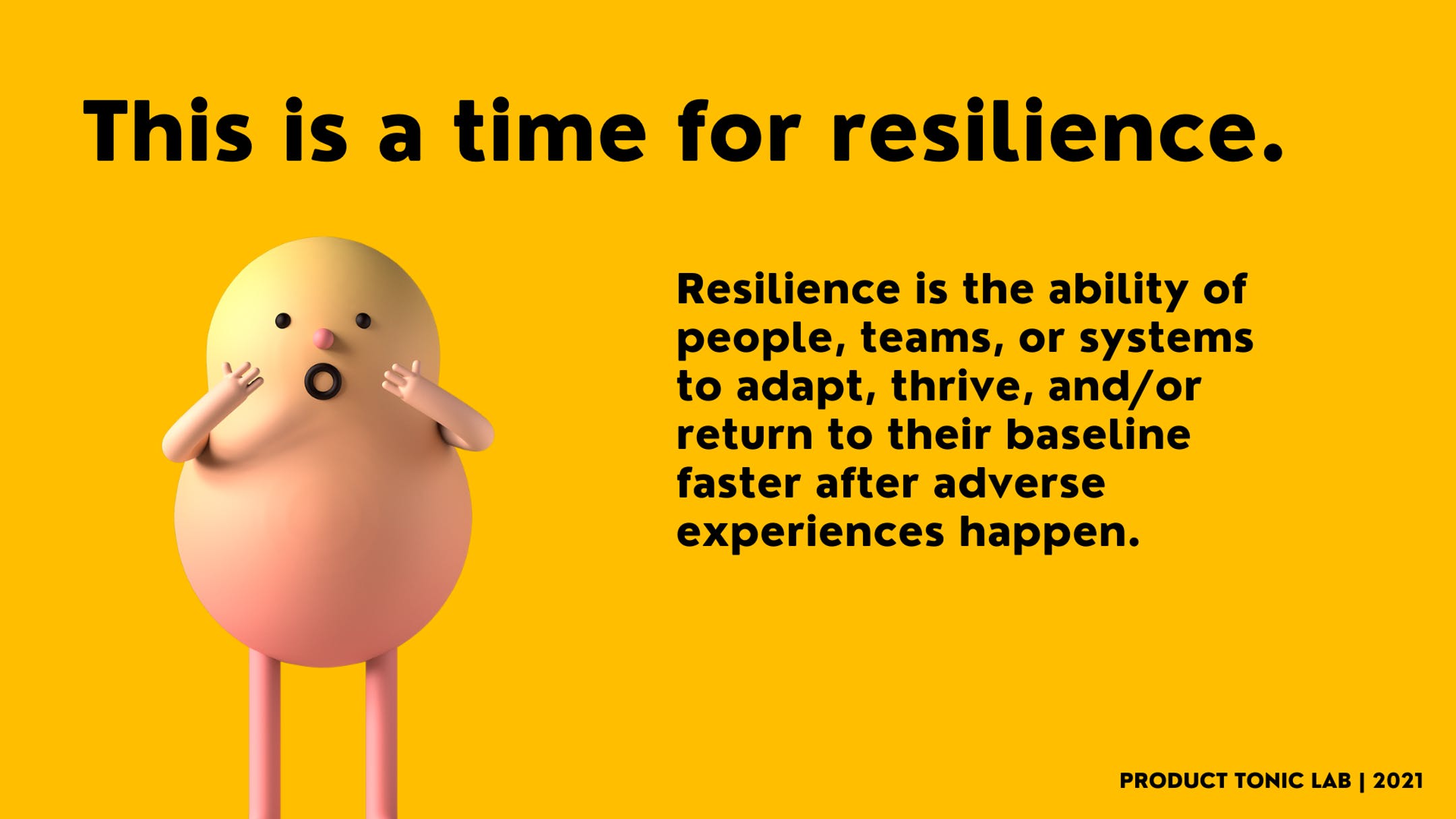
Psychologists define resilience as the process of adapting well in the face of adversity
- Resilience = being tough?
People tend to associate resilience with toughness, as if a strong-willed person who always bouncing back after challenges. “Resilience is like having the life force of a cockroach and resistance to defeat” . - Resilience = Grit/ Perseverance?
In Product, nothing is definite. Consistency of pursue isn’t a positive trait. “Having grit is amiable but I could be making the same mistake again…People who were right a lot of time were people who often change their minds”
3 Types of Resilient:
- Natural Resilience : It is a gift that we forgotten after the age seven. But, we can relearn it again as it is always inside us.
- Adaptive Resilience : It is a transformative experience on learning and growing after each setback than repeating the same mistake. The ‘trial by fire.’ This occurs when challenging circumstances force you to learn and change and adapt. Learning how to roll with life’s punches can help you build resilience and grow stronger as a result. (intelligent for product person: pivoting & continuous learning).
- Restored Resilience : To heal from past, present and future traumas in a healthier way.
Reference: act-resilient
Resilient strategies to self-care
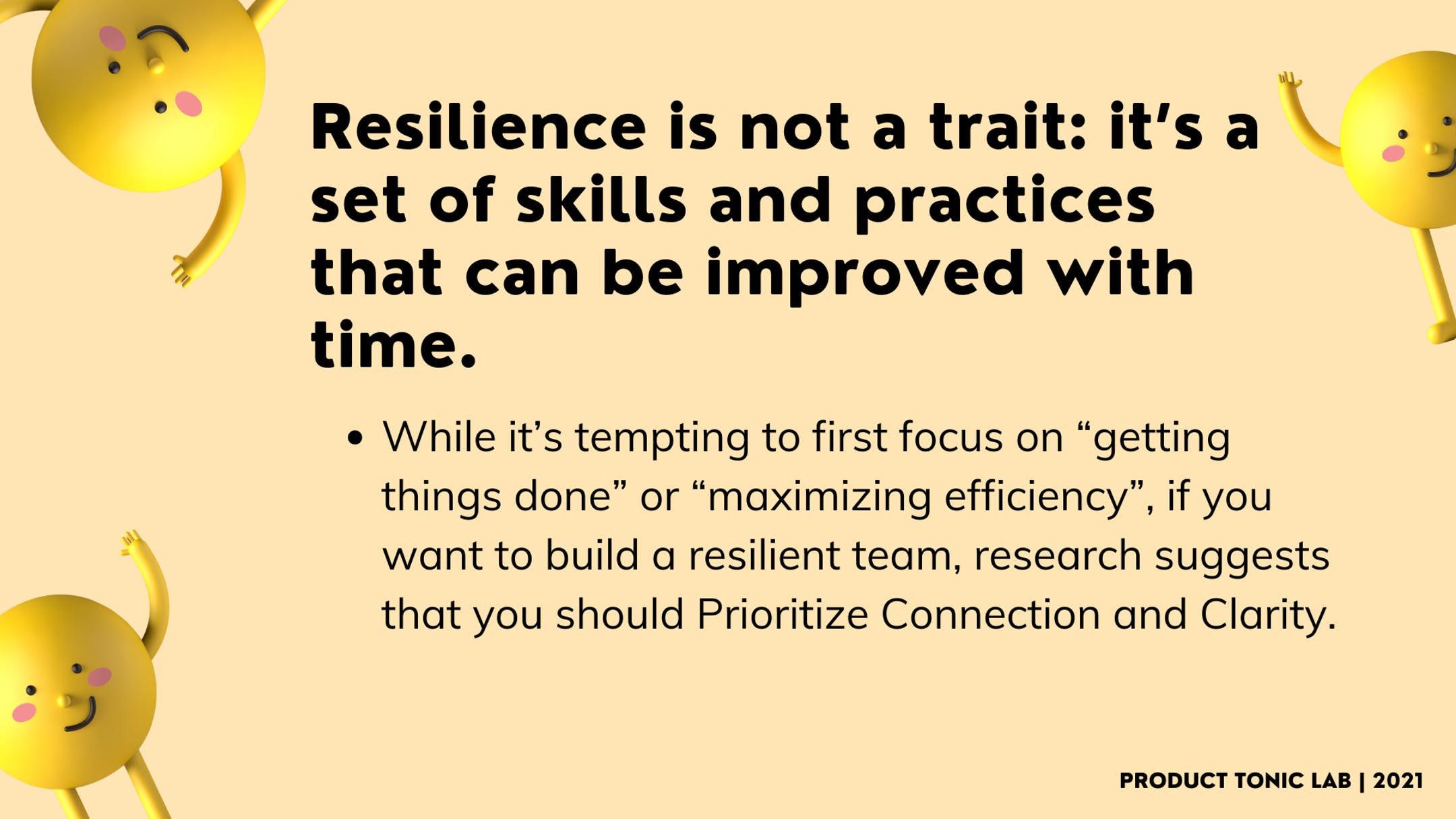
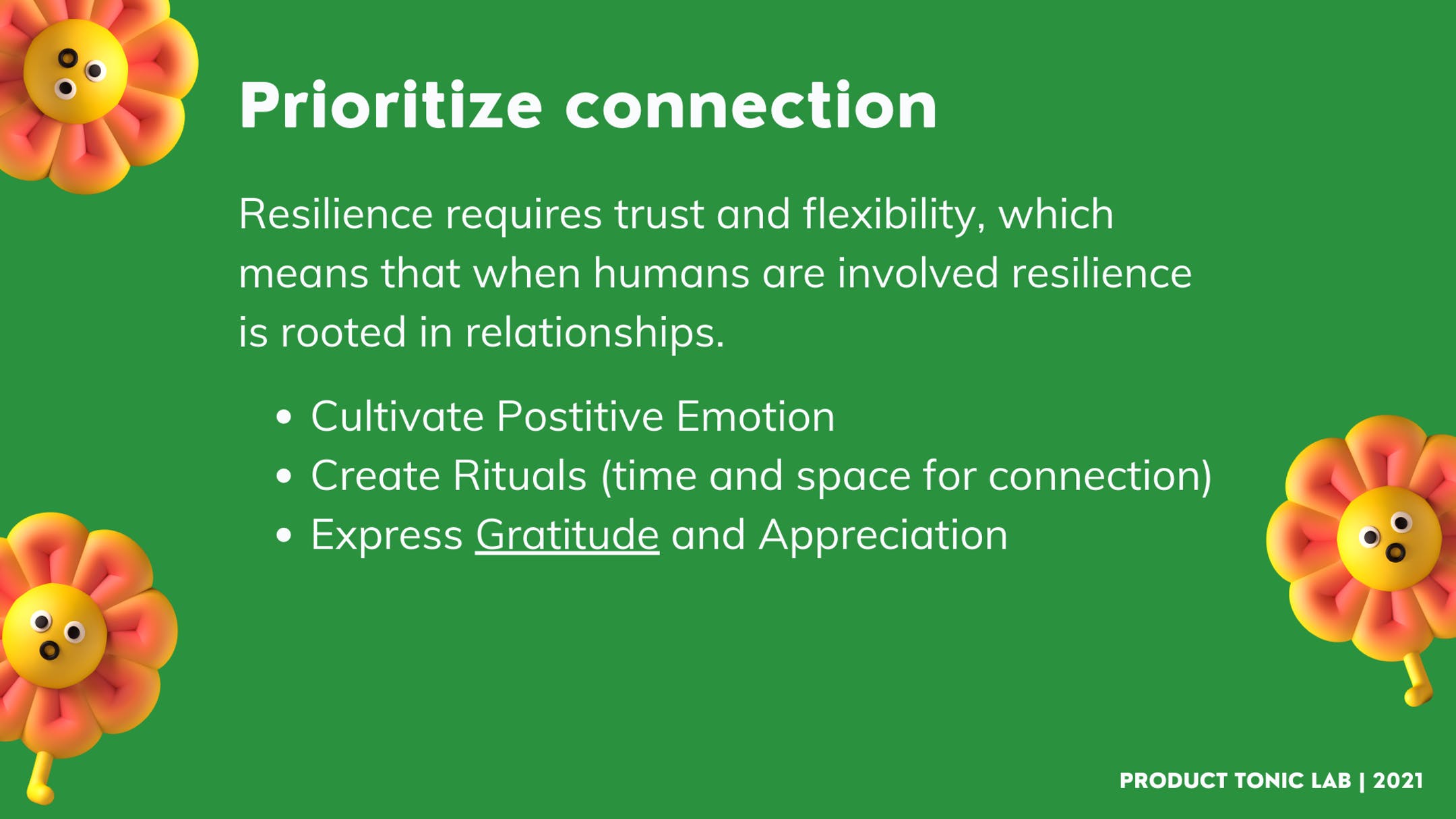
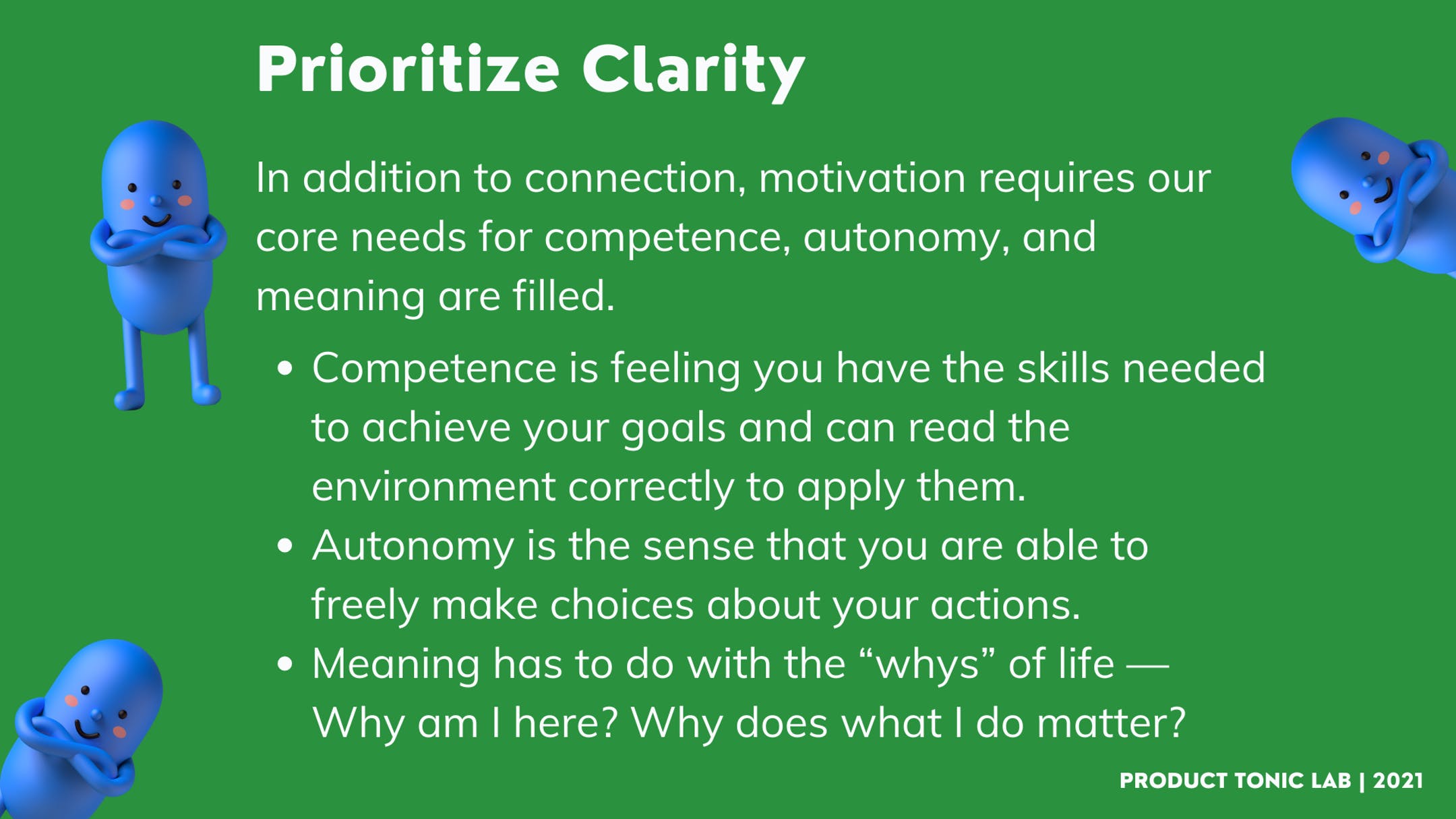
Resilience is a response to adversity. It is both measurable and trainable. It is not fixed; but can be learned, taught, practiced, and developed. How we think about ourselves has an impact in our capacity being resilient. You can grow your resilience.
- Humans are hardwired to react to the bad.
- Your skill at managing negativity determines your resilience.
- How you define yourself matters a great deal.
- Abstract thinking may increase resilience.
- Go sweat the small stuff. (Pay attention to yourself)
Reference: 5 Things You Need to Know About Resilience
7 Resilient strategies to self-care after setback, fatigue, and burnout.
- Exercise.
- Make time for solitude.
- Engage in positive self-talk.
- Get out more and experience life.
- Learn from failure.
- Cultivate both humor and curiosity.
- Have realistic expectations for yourself and others (your client, boss, team, etc.).
Reference: “Resiliency counseling in economic hard times.” by Javors, Irene Rosenberg
Resilient teams - HMW increase the resilience of our teams?
Why should we care about team resilience?
- Only 2% of teams are resilient. Can be identified by specific behaviors.
- Translates into
- Better team performance
- Achieve business results
- People reaching their potential at work
- Resilience isn’t just a matter of “toughing it out.” It is a mental state to feel comfortable when being uncomfortable.
Bearing up under pressure and in stressful situations is certainly part of being resilient, but it’s just one part. It’s often their ability to mentally handle the intangibles (weather, unknown obstacles, attitude about ability, illness, a nagging injury, being cold and wet 24/7, and the fear of failure) that carries the few that make it across the finish line. - Resilient leaders beget resilient teams: It starts with you as a leader. You can’t build resilient teams without first being resilient yourself.
- Teams are a highly effective lever for increasing resilience. You can increase individual resilience with 1-to-1 coaching. What you say matters…the way you say it matters!
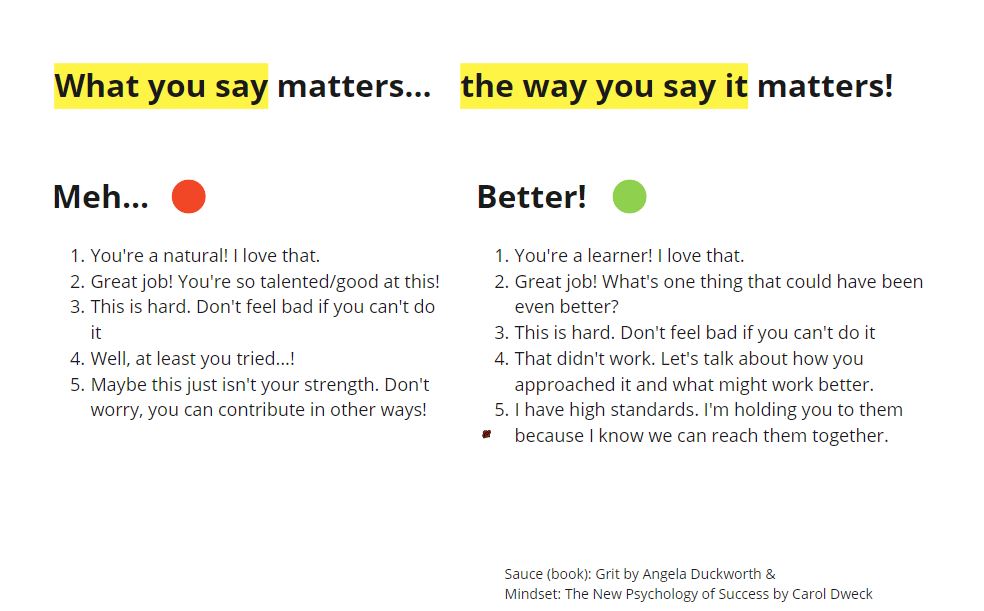
3 Practices to Build Your Leadership Resilience.
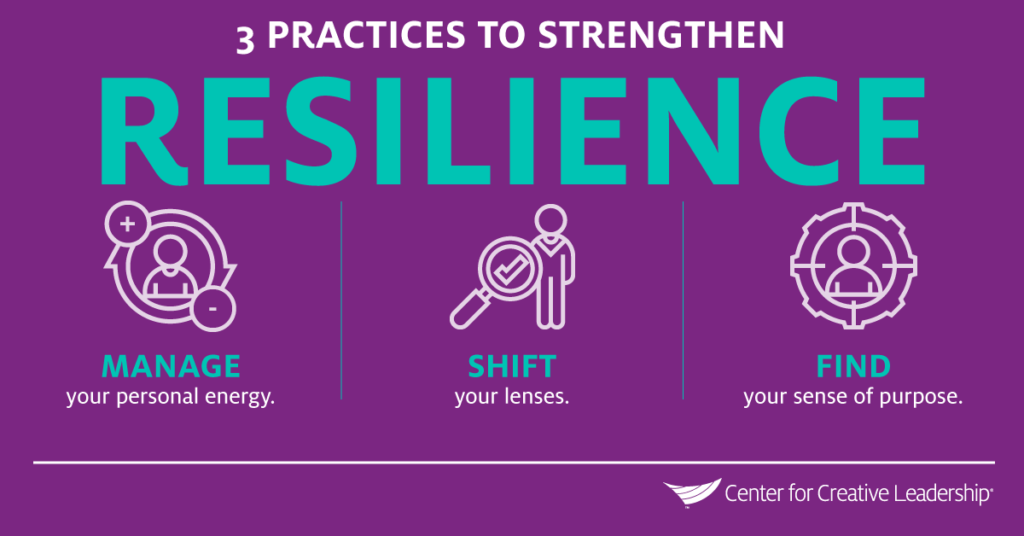
- Personal Energy Management : Manage your own resistance. “Show up,” give your best, and relinquish attachment to the outcome. Stay in the present.
- Shift Your Lenses : Take charge of how you think about adversity. Understand your beliefs about the situation, and choose your response. Exercise compassion for yourself and others.
- Sense of Purpose : Develop a “personal why” that gives your life meaning. This helps you better face setbacks and challenges. Also, look for ways that crisis and adversity may connect to your larger life purpose. Lessons can be gleaned from hardships.
Reference: “Leadership Resilience: Handling Stress, Uncertainty, and Setbacks.”
Takeaways
- Stress and challenges will not go away, but our capacity to mitigate their impact can grow.
- Resilient people don’t deny their human responses to loss and pain. The more we feel all of our feelings, the more resilient we are.
- Having a larger community base and support system builds resilience.